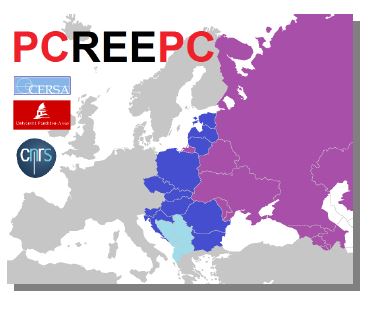From Below and In Between – Narrating and Practicing the Cold War in South East Europe
01-02.06.2017
HU Berlin
Deadline: 05.02.2017
http://www.cemog.fu-berlin.de/ news/cfp-cold-war-south-east- europe.html
Workshop Organizer: Janis Nalbadidacis (Chair for South East European History,
Humboldt-Universität zu Berlin), Matthias Thaden (Chair for the History of
Western Europe and Transatlantic Relations, Humboldt-Universität zu Berlin)
Supported by the Center for Modern Greece (Centrum Modernes Griechenland –
CeMoG) and the Southeast Europe Association (Südosteuropa-Gesellschaft –
SOG)
The Cold War as a global geopolitical order after World War II had a profound
impact on the comparatively small area of South East Europe. Ideological fault
lines divided various countries from one another and resulted in an
exceptionally fragmented political landscape: Rumania und Bulgaria joined the
Warsaw Pact under Soviet influence, Greece and Turkey became members of the
NATO, and Yugoslavia held a leading position in the Non-Aligned movement.
Furthermore, Albania broke bonds with the Soviet Union in 1962 and became
increasingly isolated. Not only in a Cold War-context, South East Europe is
often seen as a periphery to the global centers. The workshop will challenge
this perspective. Instead, we will approach the region as a center of
ideological fractions during the Cold War, therefore treating it as a
“burning glass” of geopolitical orders.
Up until now, research on Cold War South East Europe has predominantly been
state-centered, with diplomatic history prevailing as a privileged approach.
Cold War Studies are increasingly adopting current historiographic innovations
that emphasize both micro-historical and actor-centered as well as
transnational approaches. By asking about the implications and consequences of
global configurations on a local level and how such patterns were perceived
and
appropriated, a general trend can be identified that aims at writing a social
and cultural history of the Cold War. In this vein, it has been argued that
the
Cold War is to be studied beyond geopolitical constellations and state
actors’ strategies. Instead, emphasis is to be put on the field of the
production of cultural and social meaning and on scrutinizing the relevance of
binary Cold War representations for the shaping of peoples’ everyday
realities over time. Following this perspective, we are interested in
investigating to what extent practices and narratives became informed by
respective “Cold War frames of reference”. This approach, however, would
not be sufficient without taking into consideration individuals’ agency and
conflictive sets of representations that complemented or even undermined
normative visions of Cold War order. For instance, did imperial legacies or
age-old trans-border practices in South East Europe challenge such normative
visions of Cold War?
This way, the workshop not only intends to make a contribution to the regional
history during this period but, at the same time, to further general insights
on the Cold War. We especially welcome local and actor-centered contributions
as well as comparative approaches, which contrast their respective topic with
cases from other regions.
To this end, we encourage the presentation of research which addresses one of
the following overarching question sets:
1) The Making of the Cold War. The Construction and Perpetuation of a “Cold
War Mindset”
How did various actors on various levels participate in the process of
establishing the Cold War as a frame of reference in South East Europe? How
did
referring to the Cold War influence their perceptions and expectations? Was
the
Cold War order consciously mobilized in order to pursue their interests and
agendas?
2) Contesting the Cold War. Alternative Visions of World Order
Which competing local and regional narratives of world order existed? How did
such alternatives challenge Cold War patterns? Who were the representatives of
such alternative views and what was their relation to official discourses in
South East Europe?
3) South East Europe and the World. How Encounters and Exchanges Shaped Cold
War Realities
How did transnational projects and globally circulating ideas take shape in
South East Europe? Did they correspond with regional conditions and
developments?
Paper Submission
Papers will be pre-circulated and participants are expected to read the
workshop’s material and respond to presentations. Paper abstracts (up to 500
words) should be submitted to janis.nalbadidacis@geschichte. hu-berlin.de and
matthias.thaden@hu-berlin.de by February 5, 2017. Travel expenses for authors
of accepted papers will be covered up to an amount of 100 €.













